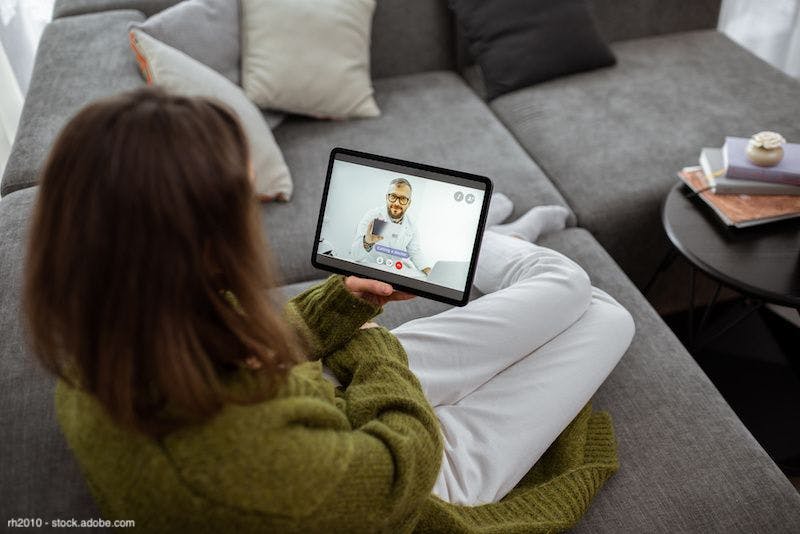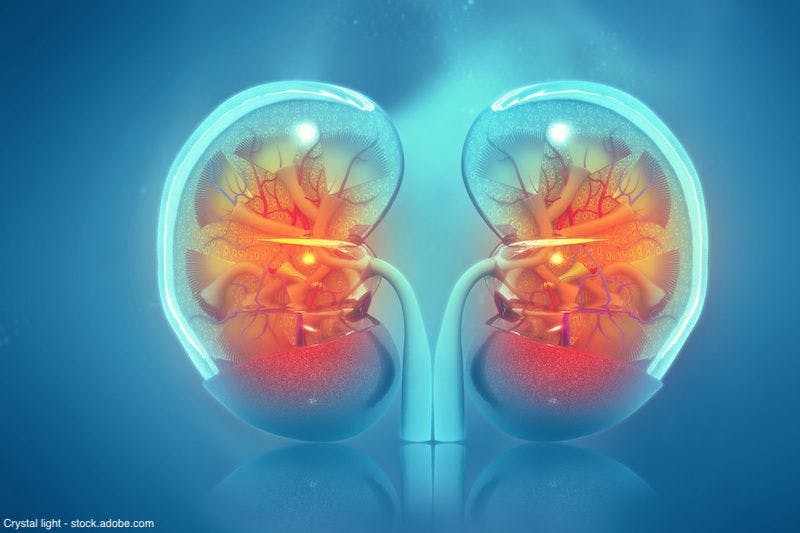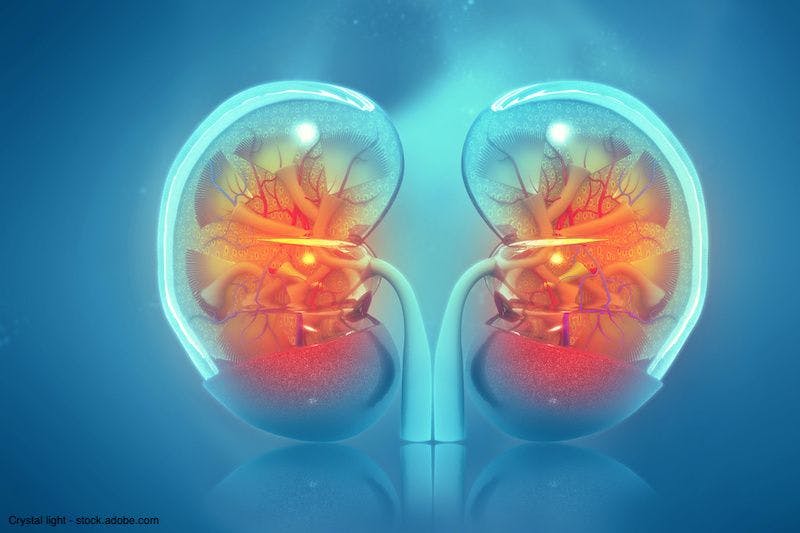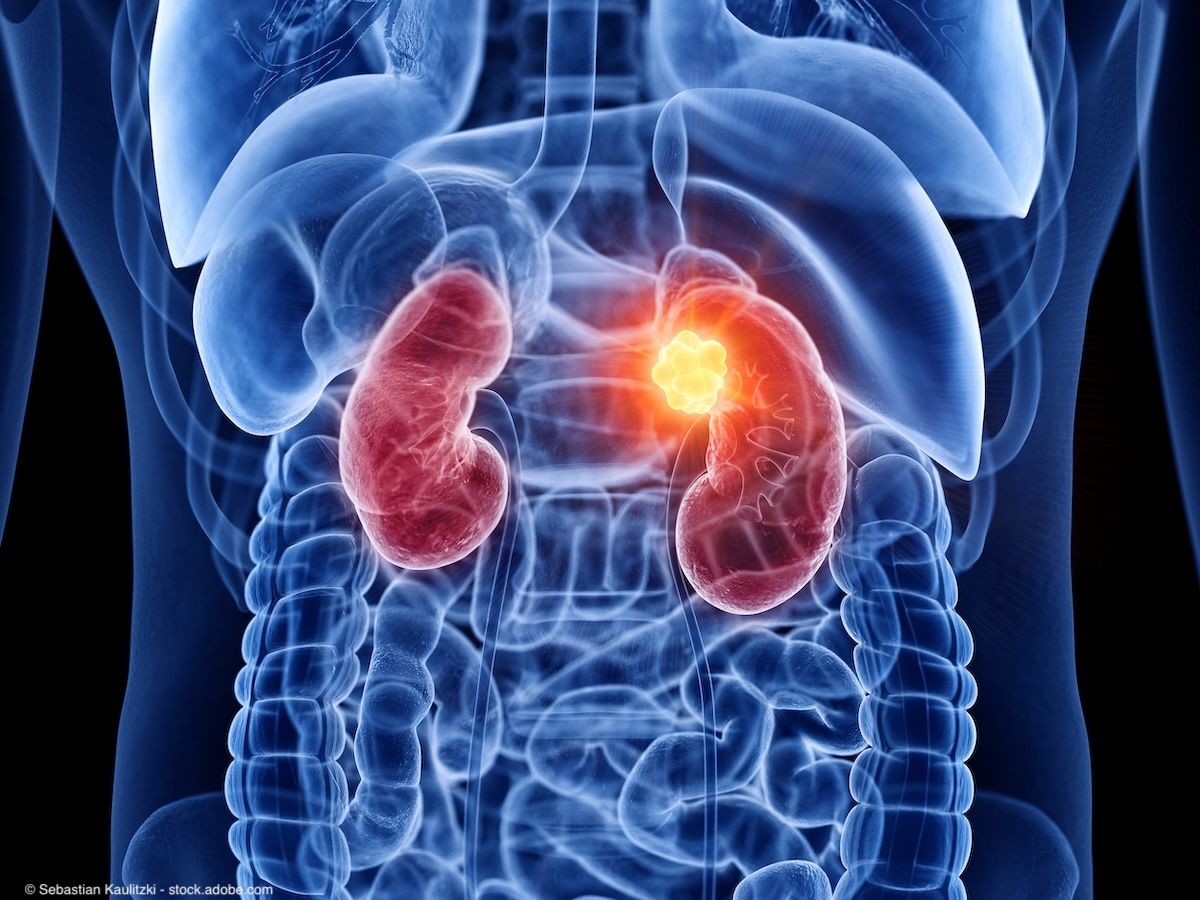Publication
Article
Urology Times Journal
Efficacy of batiraxcept/cabozantinib combo in clear cell RCC: Updated results
Author(s):
New data from the ongoing phase 1b/2 trial on combination therapy with batiraxcept plus cabozantinib (Cabometyx) continue to demonstrate favorable outcomes in patients with clear cell renal cell carcinoma (ccRCC).1
According to Aravive, the developer of the GAS6-AXL pathway inhibitor batiraxcept, the 6-month progression-free survival (PFS) rate and the best overall response rate (ORR) of the intent-to-treat population were 79% and 46%, respectively.
Kathryn Beckermann, MD, PhD

“We are very encouraged by the best overall response rate and 6-month progression-free survival rate observed in the phase 1b trial of batiraxcept in patients with ccRCC,” said lead investigator Kathryn Beckermann, MD, PhD, assistant professor of hematology and oncology at Vanderbilt University Medical Center in Nashville, Tennessee, in a recent news release.1 “These data are compelling as the objective response rate in the cabozantinib alone groups of the METEOR and CANTATA studies were 17% and 28%, respectively, and the 6-month progression-free survival rates for cabozantinib from these studies ranged from 55% to 65%. Additionally, objective response rates for other preferred National Comprehensive Cancer Network regimens range from 25% to 37%.”
The purpose of this study was to evaluate batiraxcept at 2 doses (15 mg/kg and 20 mg/kg) with cabozantinib (60 mg daily) in patients with ccRCC who had already received immunotherapy. The primary end point was safety, and secondary end points included identification of the recommended phase 2 dose, objective response rate, and duration of response (DOR).
Previous findings, which were reported in November 2021 at the 36th Annual Society for Immunotherapy of Cancer Meeting,2 showed that 44% (7/16) of patients achieved a partial response across the 2 dose levels and 56% (9/16) of patients had a best overall response of stable disease. Additionally, 88% (14/16) of patients exhibited a decrease in tumor size, and there were no reports of progressive disease or serious adverse events.
As of February 4, 2022, 26 patients have been treated with the batiraxcept/cabozantinib combination therapy. The best ORR of the group who received 15 mg/kg batiraxcept was 56% (9/16) and that of the group who received 20 mg/kg batiraxcept was 30% (3/10). There were no dose-limiting toxicities or progressive disease in either dose group, and the 3-month DOR was 100% (6-month DOR has not been reached).
Furthermore, 25 patients were eligible to be evaluated for baseline sAXL/GAS6, in which a high ratio would indicate an increased likelihood of response to the combination therapy. The 6-month PFS rate and best overall response rate in the sAXL/GAS6 biomarker-high population was 91% and 63% (best ORR, 75% for 15 mg/kg population and 43% for 20 mg/kg population), respectively.
“These early data suggest batiraxcept adds to cabozantinib clinical activity and potentially provides a much-needed therapy for this group of patients with refractory clear cell renal cell carcinoma,” said Beckermann.
Measures of safety and clinical activity were also positive, supporting 15 mg/kg as the recommended dose of batiraxcept in combination with cabozantinib for the second portion of the study.
The open-label phase 2 portion aims to enroll 55 patients across 3 parts. Part A will enroll 25 patients who will be treated with 15 mg/kg batiraxcept plus cabozantinib. Part B will enroll 20 patients who will be treated with 15 mg/kg batiraxcept plus cabozantinib and nivolumab. Part C will enroll 10 patients with ccRCC who are not eligible for curative intent therapies.
References
1. Aravive announces positive updated data and new biomarker data from phase 1b study of batiraxcept in clear cell renal cell carcinoma. News release. Aravive, Inc. Published March 3, 2022. Accessed March 4, 2022. https://finance.yahoo.com/news/aravive-announces-positive-updated-data-120000276.html
2. Beckermann K, Vogelzang NJ, Shifeng M, et al. A phase 1b/2 randomized study of AVB-S6-500 in combination with cabozantinib versus cabozantinib alone in patients with advanced clear cell renal cell carcinoma who have received front-line treatment. Paper presented at: 36th Annual Society for Immunotherapy of Cancer Meeting; November 10-14, 2021; Washington, DC. Abstract 424.
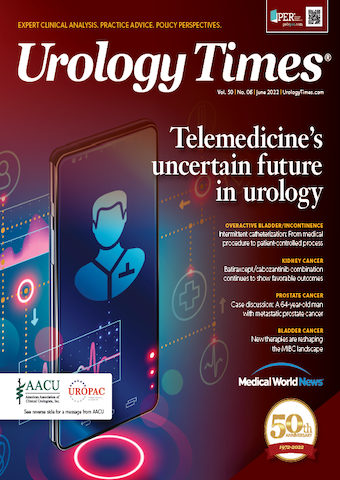
Newsletter
Stay current with the latest urology news and practice-changing insights — sign up now for the essential updates every urologist needs.




